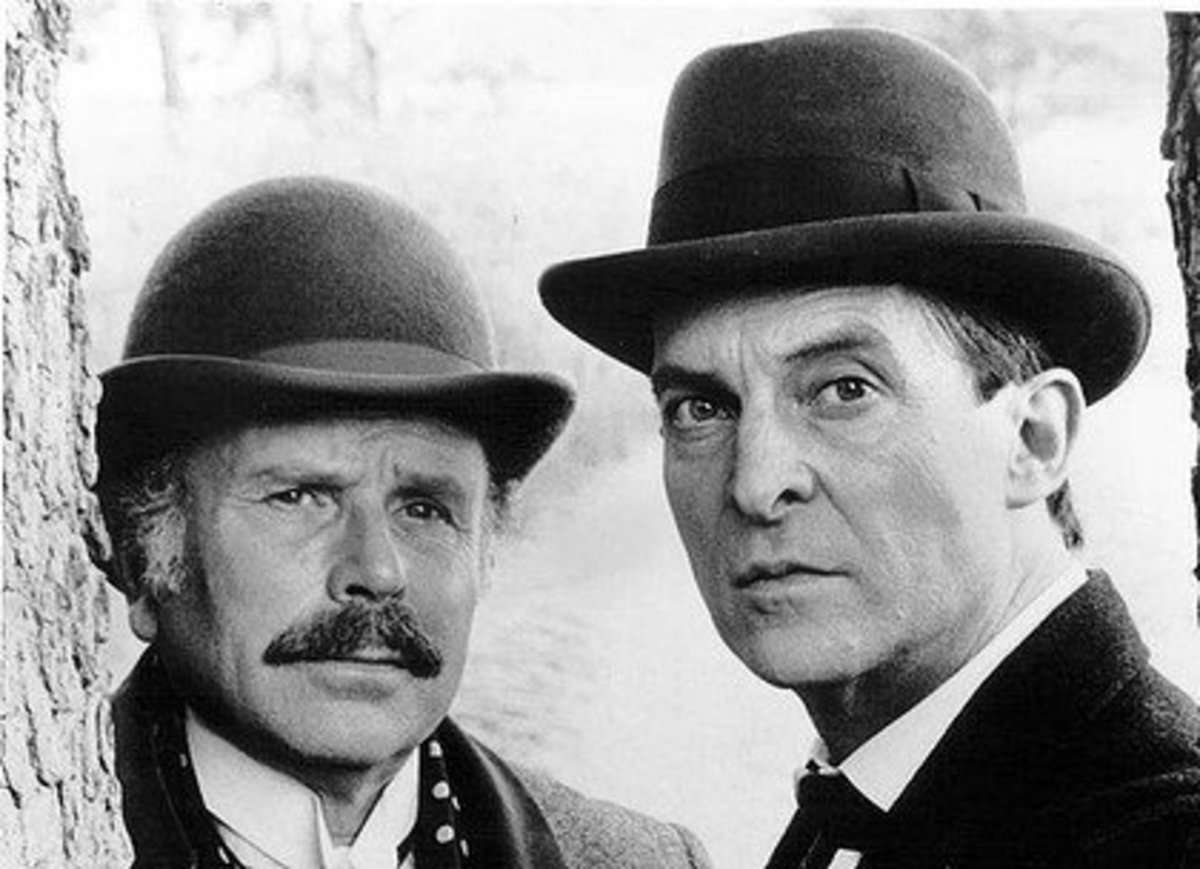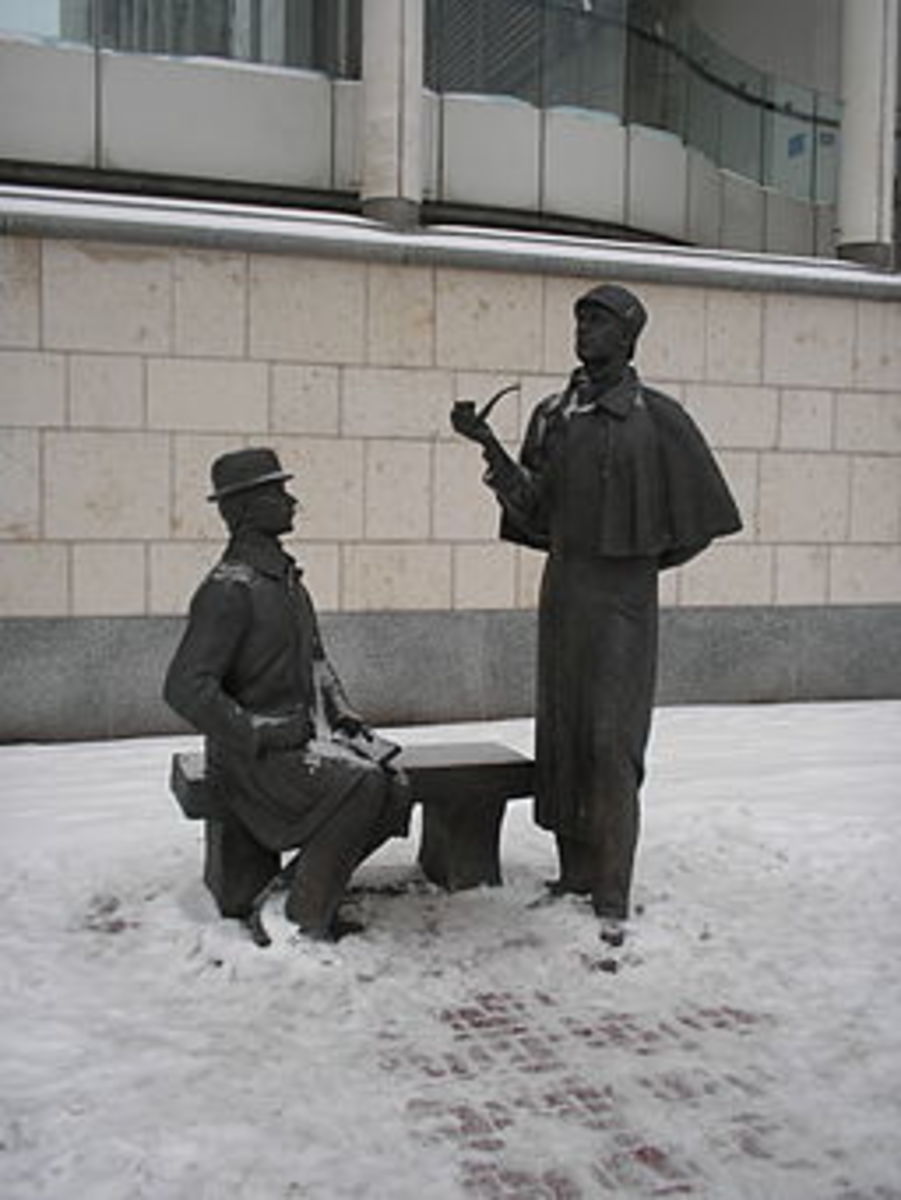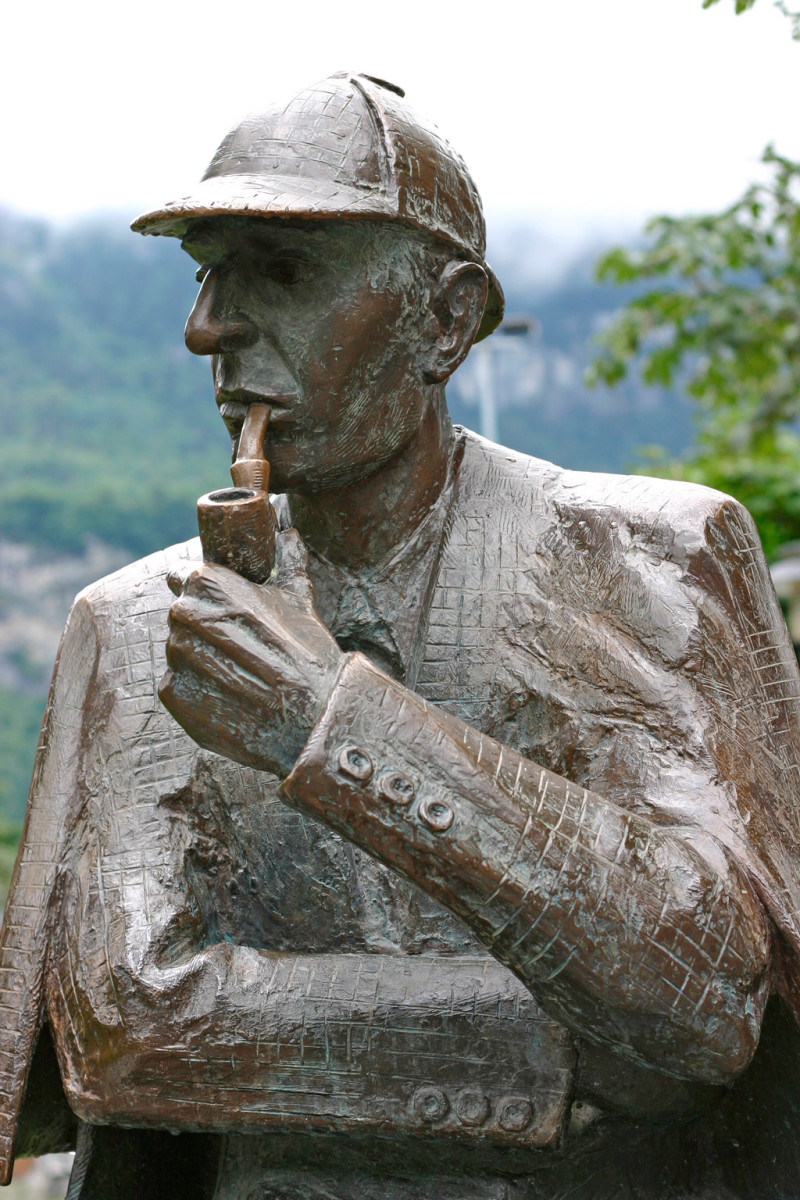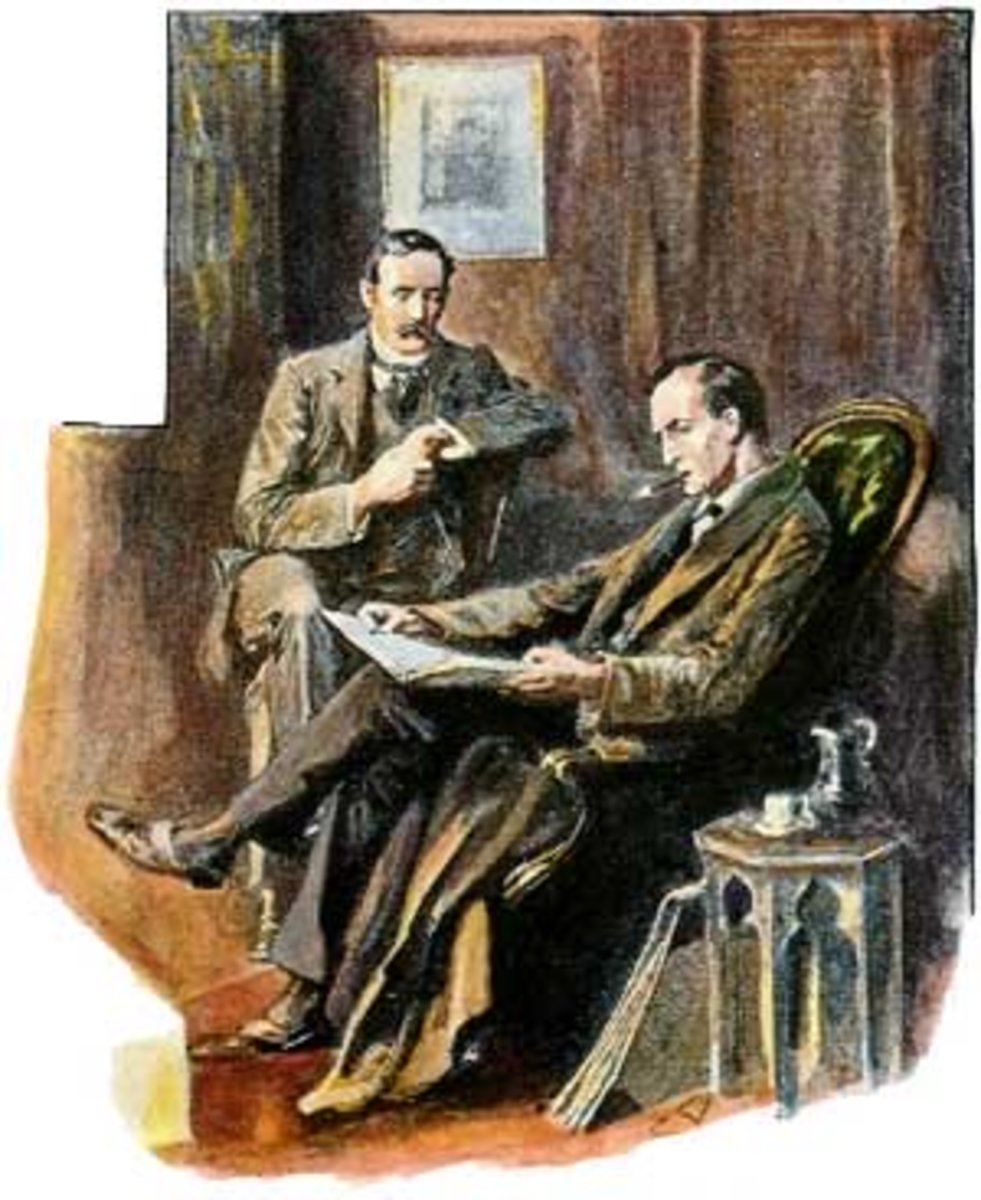Sherlock Holmes: Did Moriarty Exist?
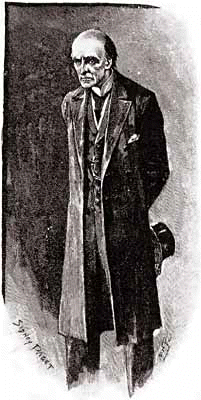
An interesting thought ran through my head when reading «The Final Problem», that famous novel by Sir Doyle that was supposed to end the saga of Sherlock Holmes and the narrator, doctor Watson. Perhaps it is nothing more than a random thought, yet I wish to ask if anyone has wondered the same: was Moriarty real?
Unseen by All
First, remember that the famous Moriarty only appeared in one of the original Sherlock Holmes books, the last one. Watson has never heard of him, creating a problem concerning “The Valley of Fear”, which was written later but set earlier, and in which Moriarty is mentioned. But we concern ourselves only with “The Final Problem”, in which we have this dialouge between Sherlock and Watson:
He saw the question in my eyes, and, putting his finger-tips together and his elbows upon his knees, he explained the situation.
"You have probably never heard of Professor Moriarty?" said he.
"Never."
Also notice that our narrator Watson never meets or sees the master criminal. Holmes has just come home from France when he meets Moriarty in Baker Street, but this is after Watson has moved out. Mrs Hudson does not seem to have noticed the man entering her house, nor does any person claim any knowledge of him, the police is moving only on Sherlock's orders. Watson sadly never talks to the police, so it is not clear how much they know about Moriarty, and how much of it all comes from Holmes.
Unproven Actions
Maybe the absence of Moriarty was done to create mystery around the evil mastermind, but he is not so mysterious as to leave the tasks at hand to his henchmen. Several times he is apparently close, and Holmes points him out on the train station as the train is about to leave, and traveling far in the distance. Never does Watson get a look at him, we only get Holmes' assurance that he is there, and Holmes' description of the character. Holmes could have pointed anyone in the crowd.
The burning of Baker Street is another matter. I must assume that Holmes did not lie about his home burning down, as Watson knew Mrs. Hudson and would likely find out if it did not, but we only have his word that Moriarty did it. Interestingly, the man obsessed with deductions and complaining that Watson never cares about how Holmes reaches his conclusions does not say how he knows that Moriarty did this, nor that he was behind the other accidents that followed Holmes. These other incidents, like a brick falling and almost hitting his head, we once again only have Holmes' word for.
To the Reichenbach Falls
So Holmes and Watson travel to the continent, and Holmes gets news from the police: the criminal gang has been rounded up, but no Moriarty. Once again, we do not know what evidence the Yard had for believing Moriarty was part of it, if they believe at all. Holmes states that Moriarty is following them, and after traveling and trying to hide they eventually end up in Meiringen near the famous Reichenbach Falls.
One day when traveling in the area they get up to the Falls, and just then a boy comes running, handing Watson a letter claiming that an old English woman has fallen ill, and asking for Watson's help. Watson is unwilling to leave Holmes alone, but Holmes insists and makes the young boy stay as his companion and guide in Watson's stead. Watson therefore rushes to the assistance, only to find he has been had. He runs back as fast as he can, but is too late. Sherlock and the kid is gone, all Watson finds is Holmes' walking stick and a letter. Watson also notes that there are two sets of footprints, assuming them to belong to Holmes and Moriarty.

The Kid and the Letter
But this begs the question, where did the kid vanish off to? Did he not leave a print? I must admit I do not know where the two vanished off to, but it seems more likely to me that the second prints belonged to the kid rather than Moriarty. Then we have the letter, of which Watson says: “the writing as firm and clear, as though it had been written in his study.”
So if we take this as a hint, it seems Holmes' letter was written ahead of time. One may wonder why Moriarty would allow Holmes to write the letter anyway. Then Holmes and the boy disappeared, climbed the rocks, perhaps and left the letter behind.
People Disappear and the Man with the Letter
The kid is never seen again, and in the trial of the criminal gang no details surrounding Moriarty appears. I would guess the kid was a part of the Baker Street Irregulars, and that Holmes simply claimed Moriarty to be the leader of some gang he had discovered. One last thought: if Moriarty was such a fearsome opponent, why did Holmes fight him from France, where he had been residing? Should he not have used his deductions in the streets of London, finding clues?
I have however found one potential weakness to my theory, namely the only man who claims to have seen Moriarty, appart from Holmes. The man who was given the letter which he was supposed to give Watson about the sick woman claims to have gotten it from a “tall Englishman”. This could fit Moriarty, but it could also be Holmes himself, his brother Mycroft who may have been in on it, or it could be Holmes instructed the man to lie. I do not concider this a big problem, as there are many plausible ways around it.
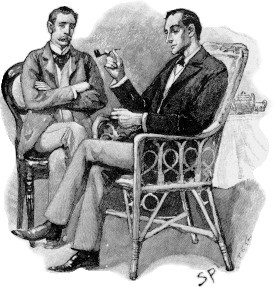
The Question: Why?
I do not know why Holmes would make up Moriarty. Maybe it was simply Doyle, who never liked Sherlock Holmes, having fun. Maybe Holmes that his carriere hade peaked, as he hints towards with all his talk of Moriarty being the pinnacle of Homles' opponents. Maybe he wanted to get away from it all. Whatever the reason, he decided to trick old Watson, and Watson fell for it. This should be no surprise. Watson would never doubt Sherlock, that is perhaps his most endearing trait.
As an afterthought, I have to wonder if this was the thought that inspired Moriarty's role in the new “Sherlock” series, where Moriarty tries to convince everyone that he does not exist and that Holmes was the evil mastermind.

